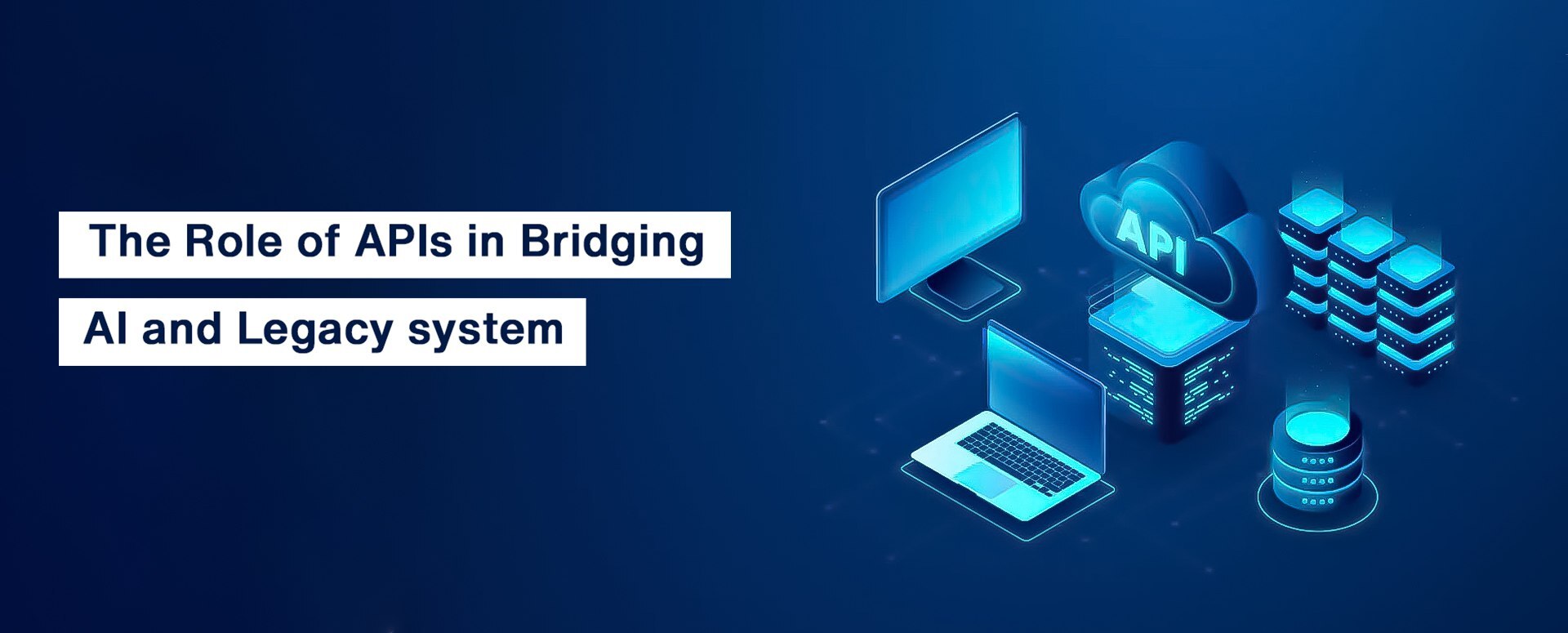Legacy systems play a vital role in business growth. Unfortunately, outdated technology stack and limited flexibility lead to legacy systems failing to meet current requirements. Legacy systems can open new business opportunities when you address the limitations. APIs or Application Programming Interfaces can become the pivotal connectors bridging legacy systems and AI-driven efficiencies without complete transformation. Are you ready to know more? Read ahead.
Methods How APIs Facilitate Legacy System And AI Integration
Here are some ways APIs can bridge the gap between AI and legacy systems.
Interoperability
APIs become the interface to promote communication between various software systems. APIs can provide a standardized legacy system interface to connect with modern API solutions with existing outdated technologies. Exploiting the API functionalities can increase the pace of development with fewer errors. APIs can facilitate system upgrading without interrupting the current operations.
Data Exchange
APIs standardize data formats across AI solutions and legacy systems. Using API can ensure data consistency due to the use of validation techniques. It can lead to the AI models gaining access to high-quality, consistent data for better training and decision-making. Large data transfer with effectiveness becomes easier with the use of APIs.
Real-time Integration
APIs can facilitate real-time data exchange to optimize AI capabilities. Access to updated information can prove vital for immediate decision-making like real-time customer service or fraud detection. Also, APIs can improve system responsiveness due to real-time integration. It can ensure better insights and rapid feedback based on the updated data. Organizations can respond quickly to ever-changing situations without hassles. Real-time integration ensures continuous data flow to uphold the relevance and effectiveness of AI models.
Addressing The Challenges Of API Integration
The API integration can bridge the gap between AI and legacy systems. However, it poses some challenges. How can you address the challenges? Here are some ways.
- Security Issues
APIs can face security issues like unauthorized access, cyberattacks, or data breaches. It can impact secure data transmission between legacy systems and AI. Data security plays a vital role in safeguarding sensitive information. Using robust authentication mechanisms can address the security concerns. Integrating TLS/SSL encryption methods can keep data safe during transfer.
- Problems With Compatibility
Using proprietary or outdated technologies by legacy systems can trigger incompatibility issues with AI solutions. It can impact the seamless communication between legacy and AI systems. Conducting extensive compatibility testing can address the problem. Integrating adapters or middleware can ensure seamless communication between dissimilar systems. Employing schema mapping techniques can aid in data structure alignment. It can make data processing by AI systems from legacy systems easier.
- Data Privacy
Data exchange between AI and legacy systems can pose a danger to privacy. However, data exchange must comply with CCPA and GDPR data privacy requirements. Adopting data anonymization techniques can protect confidential information. Such techniques can guarantee that the data exchange occurs adhering to the privacy legislation and meets the user expectations.
- Performance Issues
Integrating legacy systems and AI using API can lead to performance bottlenecks. It becomes a problem when the legacy systems cannot handle high-volume data transfers. A caching solution can unburden the system load. It also optimizes response time. Load balancing techniques can distribute the traffic. Employing asynchronous processing can prevent API blocks by managing long-running operations. These techniques can optimize responsiveness and overall performance.
- Data Quality
Storing data in incomplete and inconsistent formats by legacy systems can cause ineffectiveness. AI models require high-quality data for inference and training. Standardizing and enriching legacy data using schema mapping techniques can optimize data quality. Checking data quality constantly can give AI models access to accurate and reliable information.
- Scalability
API can adopt microservices architecture to manage increased loads without compromising reliability and performance. Using cloud-based API management solutions has high availability and built-in scalability. Also, horizontal scaling techniques can meet the increase in demand.
Conclusion
APIs can bridge the gap between legacy systems and innovative AI technology. It empowers businesses to navigate complex technologies without a complete overhaul. Consult an expert to optimize your business infrastructure with API integration for sustained, scalable, and strategic growth.
 July 3, 2024
July 3, 2024

